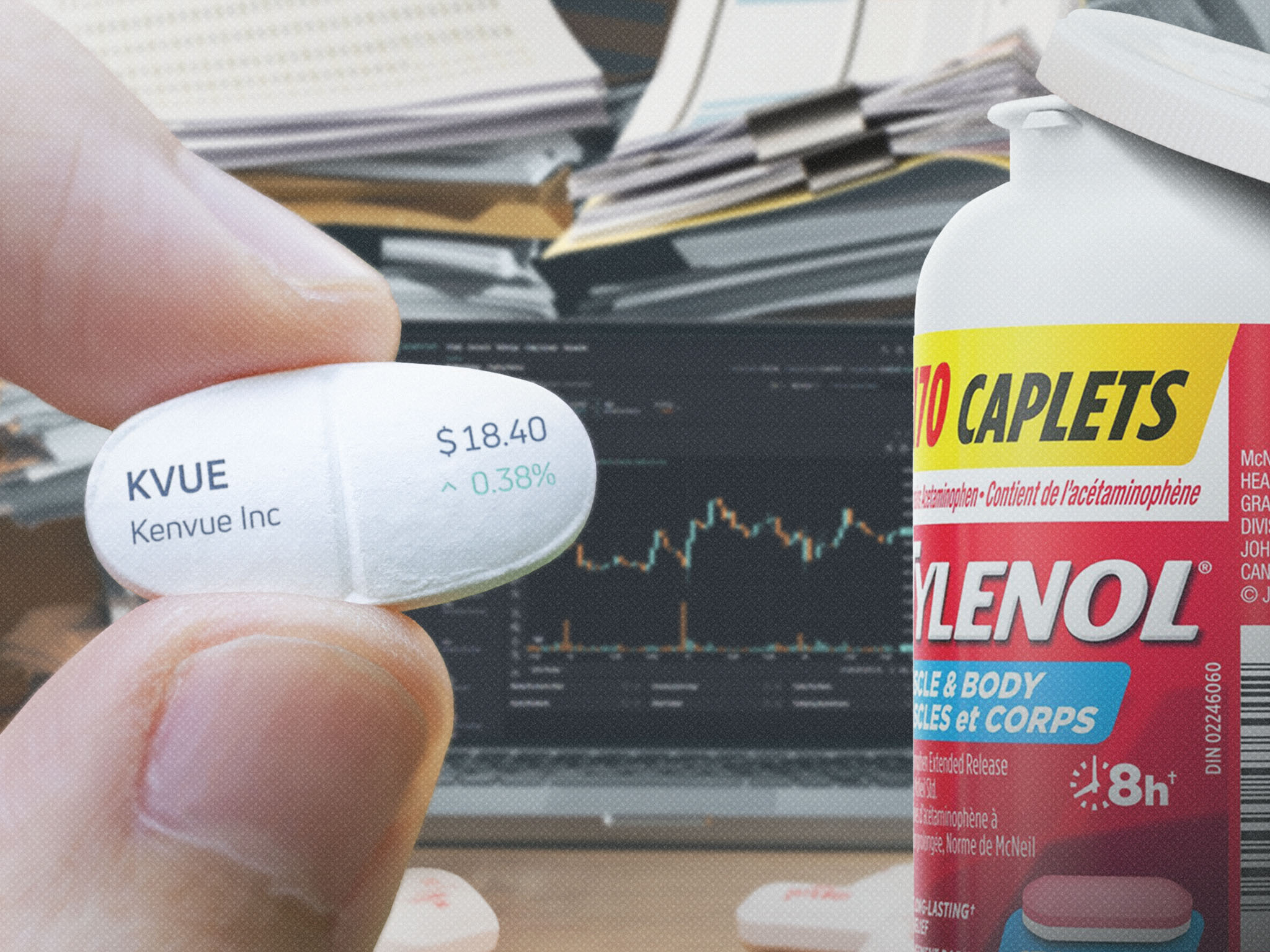The manufacturer of Tylenol, Kenvue (NYSE: KVUE) could be facing tough times ahead if unscientific claims about the pain relief drug are released by Health Secretary Robert F. Kennedy Jr. in a report.
The stock had fallen over 10% last week on the news that Kennedy Jr. had planned to reveal a report that links the usage of Tylenol during pregnancies to two disorders – autism spectrum disorder (ASD) and attention-deficit/hyperactivity disorder (ADHD), despite the lack of scientific evidence.
The U.S. Food and Drug Administration said in 2023 that there is no link between acetaminophen, the active ingredient in Tylenol, when it is taken during pregnancy for either disorder.
The interim CEO of Kenvue, Kirk Perry, met privately last week with Kennedy Jr. to reiterate the lack of a scientific link between the drug and autism, according to sources that spoke to the Wall Street Journal. The report from the Department of Health and Human Services is supposed to be released later in September.
Impact of Tylenol on Kenvue’s revenue
A top seller for Kenvue, Tylenol is commonly used in the U.S. and several other countries and produces about $1 billion each year, “making up a high-single-digit percentage of the firm’s total revenue, so any potential threat to the product could have a noticeable impact on the firm’s earnings power,” wrote Morningstar analyst Keonhee Kim in a research report.
But shares of Kenvue have rebounded slightly as Wall Street analysts such as BofA Securities kept its “buy” rating and $25 price target. The stock’s drop subsided recently, dropping to a 1.7% decline over the past five days.
But Kenvue’s portfolio is large, and its other products generate growth, especially its self-care unit, which is “usually its strongest segment,” he wrote.
Sales have retreated as consumers have cut back on spending due to higher inflation and interest rates, especially in beauty and skin health. Kenvue generated over $15 billion in sales in 2024, with 50% of its revenue coming from outside of North America. Net sales fell by 4.0% during the second quarter, while the gross profit margin declined to 58.9% compared to 59.1% in the prior year period.
Morningstar has not changed its price target and maintains its prediction of $24.50 a share.
“Without knowing the report’s specific details, we believe it’s premature to assess the ensuing public reaction or the potential impact on Tylenol sales, so we have not adjusted our model,” Kim wrote. “But our long-term confidence in the name remains intact, thanks to the firm’s portfolio of category-leading brands, and we think this marks an attractive entry point for this high-quality name.”
Lack of scientific evidence
The FDA said “the limitations and inconsistent findings of current observational studies are unable to support a determination of causality” about Tylenol causing autism.
In 2024, a study of 2.5 million children born in Sweden between 1995 and 2019 did not find a higher risk of autism in the children born to mothers who took acetaminophen during their pregnancies, according to a study published by the renowned JAMA. The study compared the children with their siblings.
Previous lawsuits have been dismissed in court by judges. In 2023, a federal judge stated there was no sufficient evidence of a link.
The American College of Obstetricians and Gynecologists, a medical society consisting of physicians, still recommends acetaminophen during pregnancy to relieve pain.
“Despite recent unfounded claims, there is no clear evidence linking prudent use to issues with fetal development,” ACOG said in a statement last week.
Kenvue, Tylenol’s history
In 2023, Johnson & Johnson (NYSE: JNJ) spun off Kenvue. Johnson & Johnson concentrates on developing and manufacturing drugs to treat diseases such as cardiovascular and cancer, while Kenvue focuses on selling consumer health products such as Tylenol, Johnson’s Baby Shampoo, allergy medications such as Benadryl, Zyrtec, and Band-Aid.
Tylenol has been the target of controversy in the past, such as the 1982 cyanide poisonings of its bottles. In 2009, there were several recalls for defective manufacturing.
Kenvue’s investors have been inpatient with its performance and have sought change. The company agreed this year to appoint three new directors after pressure from Starboard Value, one of its investors.
Shares of Kenvue are down about 18% from its $22 initial public offering pricing. The company is still searching for a CEO after Thibaut Mongon was forced to leave, and the company said it was conducting a strategic review.
Kenvue faces several potential hurdles, but its products, such as Neutrogena, Rogaine, Neosporin, Sudafed and Visine, remain popular among consumers and are anticipated to generate a healthy amount of sales as the Federal Reserve is expected to lower interest rates.
The bottom line:
Kenvue is the world’s largest pure-play consumer health company by revenue, generating $15 billion in annual sales. The former consumer segment of Johnson & Johnson spun off and went public in May 2023. We expect Kenvue, with the freedom to allocate capital and invest as a stand-alone entity, to focus on its 15 priority brands (including Tylenol, Nicorette, Listerine, and Zyrtec) to drive future growth. We forecast the firm to spend roughly 3% of sales on research and development, on par with some of its wide-moat competitors, to launch innovative products, specifically in digital consumer health. Recent examples include the Nicorette QuickMist SmartTrack spray and the Zyrtec AllergyCast app.




Comments